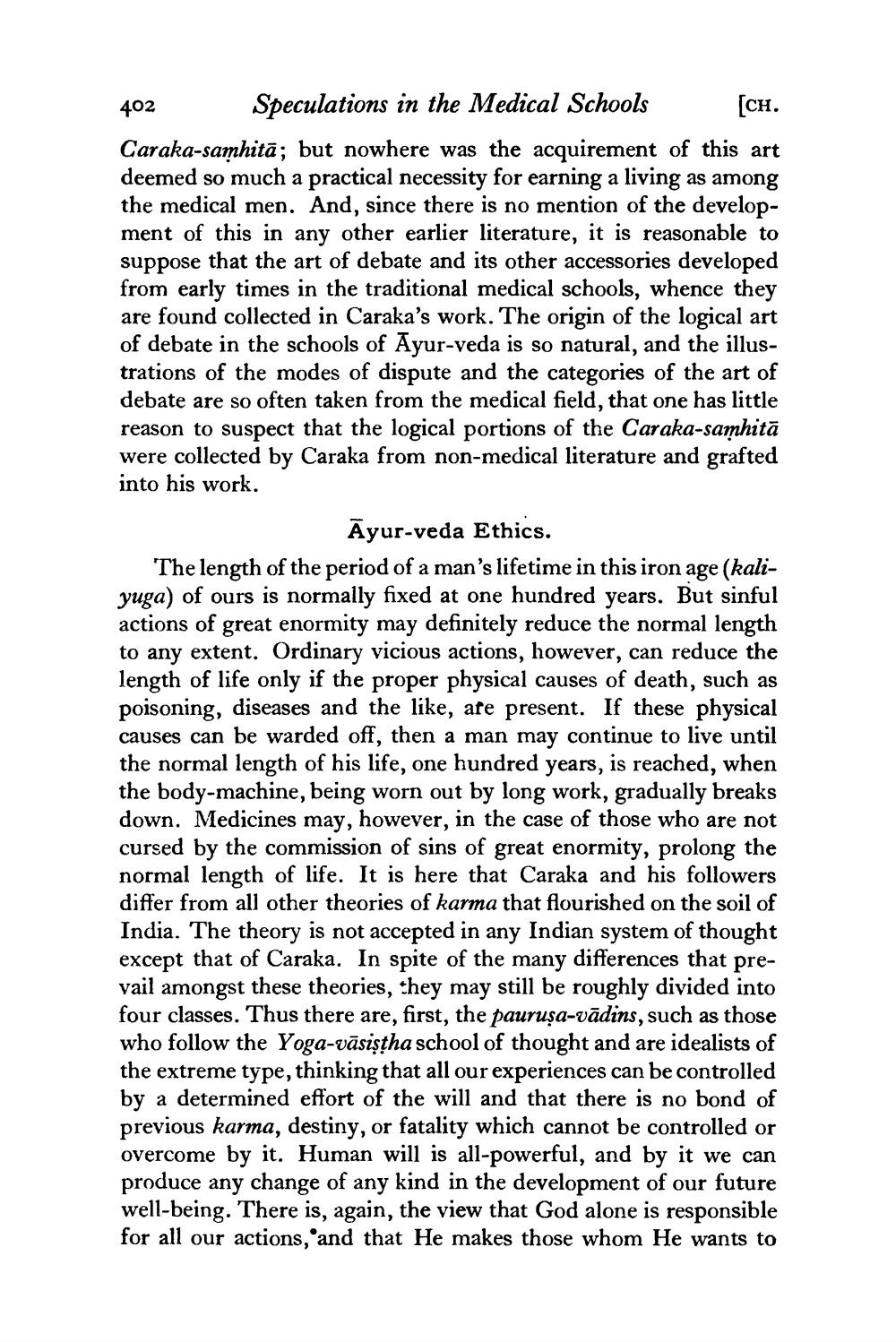________________
402
Speculations in the Medical Schools (CH. Caraka-samhitā; but nowhere was the acquirement of this art deemed so much a practical necessity for earning a living as among the medical men. And, since there is no mention of the development of this in any other earlier literature, it is reasonable to suppose that the art of debate and its other accessories developed from early times in the traditional medical schools, whence they are found collected in Caraka's work. The origin of the logical art of debate in the schools of Ayur-veda is so natural, and the illustrations of the modes of dispute and the categories of the art of debate are so often taken from the medical field, that one has little reason to suspect that the logical portions of the Caraka-samhita were collected by Caraka from non-medical literature and grafted into his work.
Āyur-veda Ethics. The length of the period of a man's lifetime in this iron age (kaliyuga) of ours is normally fixed at one hundred years. But sinful actions of great enormity may definitely reduce the normal length to any extent. Ordinary vicious actions, however, can reduce the length of life only if the proper physical causes of death, such as poisoning, diseases and the like, are present. If these physical causes can be warded off, then a man may continue to live until the normal length of his life, one hundred years, is reached, when the body-machine, being worn out by long work, gradually breaks down. Medicines may, however, in the case of those who are not cursed by the commission of sins of great enormity, prolong the normal length of life. It is here that Caraka and his followers differ from all other theories of karma that flourished on the soil of India. The theory is not accepted in any Indian system of thought except that of Caraka. In spite of the many differences that prevail amongst these theories, they may still be roughly divided into four classes. Thus there are, first, the pauruşa-vādins, such as those who follow the Yoga-vāsistha school of thought and are idealists of the extreme type, thinking that all our experiences can be controlled by a determined effort of the will and that there is no bond of previous karma, destiny, or fatality which cannot be controlled or overcome by it. Human will is all-powerful, and by it we can produce any change of any kind in the development of our future well-being. There is, again, the view that God alone is responsibl for all our actions, and that He makes those whom He wants to




